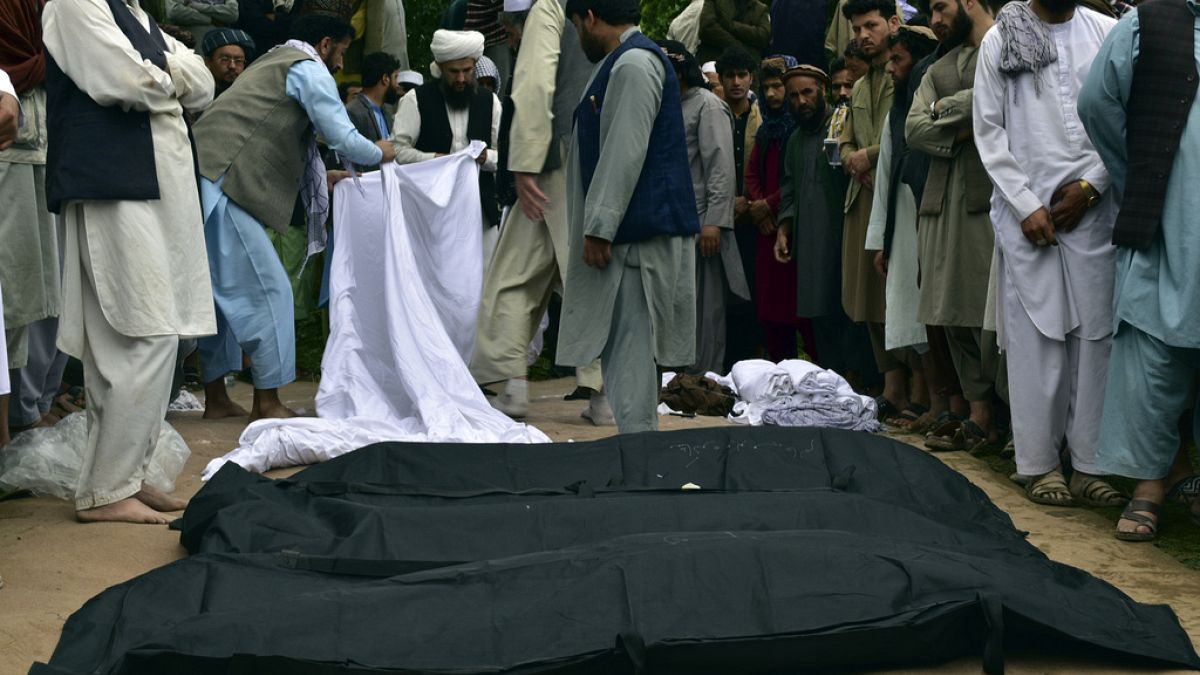The World Food Programme said it was distributing fortified biscuits to the survivors of one of the many floods that hit Afghanistan over the last few weeks, mostly the northern province of Baghlan, which bore the brunt of the deluges on Friday.
In neighbouring Takhar province, state-owned media outlets reported the floods killed at least 20 people.
Zabihullah Mujahid, the chief spokesman for the Taliban government, posted on the social media platform X that "hundreds ... have succumbed to these calamitous floods, while a substantial number have sustained injuries.”
Mujahid identified the provinces of Badakhshan, Baghlan, Ghor and Herat as the worst hit. He added that “the extensive devastation” has resulted in “significant financial losses.”
He said the government had ordered all available resources to be mobilised to rescue people, transport the injured and recover the dead.
Local media aired distressing images of young children covered in mud, having been rescued.
The Taliban Defence Ministry said in a statement on Saturday that the country’s air force has already begun evacuating people in Baghlan and had rescued a large number of people stuck in flooded areas and transported 100 injured people to military hospitals in the region.
Richard Bennett, U.N. special rapporteur on the situation of human rights in Afghanistan, said on X that the floods are a stark reminder of Afghanistan’s vulnerability to the climate crisis and both immediate aid and long-term planning by the Taliban and international actors are needed.
Videos posted on social media showed dozens of people gathered on Saturday behind the hospital in Baghlan looking for their loved ones. In one video an official tells them that they should go and start digging graves.
Officials previously said that in April at least 70 people died from heavy rains and flash flooding in the country. About 2,000 homes, three mosques, and four schools were also damaged.


